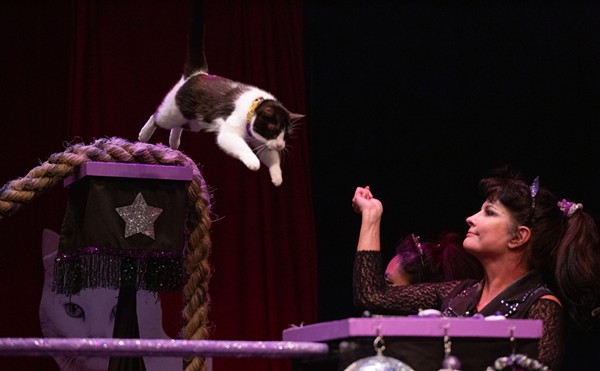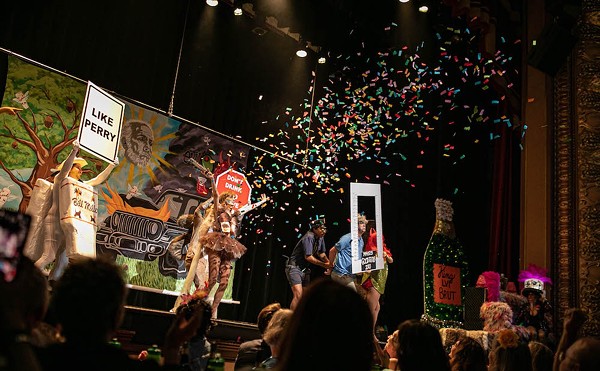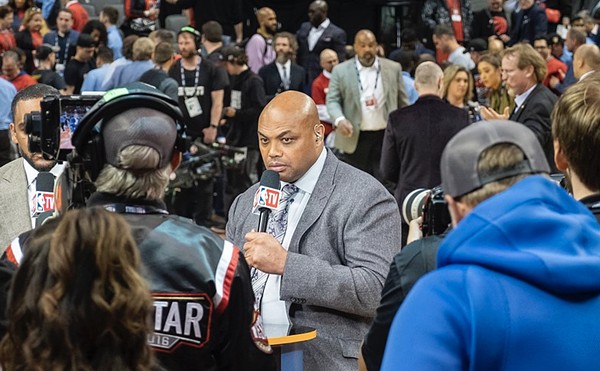Though she dubbed him Shrub and persistently ridiculed him as “just another upper-class white boy trying to prove he’s tough,” Molly Ivins and George W. Bush grew up in the same ’hood. River Oaks was Houston’s toniest address, and their families mingled with other members of the petroleum plutocracy at the nearby country club. Both attended posh local prep schools — St. John’s for Ivins, Kinkaid for Bush — and prestigious institutions in the Northeast — Smith and Columbia for Ivins, Yale and Harvard for Bush. Precedent for Dubya’s disastrous career is not so much Herbert Hoover or Warren Harding as Oedipus, the patricide who poisoned Thebes. The consensus among such books as Peter and Rochelle Schweizer’s The Bushes: Portrait of a Dynasty (2004), Craig Unger’s The Fall of the House of Bush (2007), and Jacob Weisberg’s The Bush Tragedy (2008) is that a struggle to distance himself from his onerous heritage is the key to understanding the scapegrace son of George H. W. Bush and grandson of Prescott Bush. While Ivins was mastering the populist art of cornpone-and-salsa satire, the 43rd president of the United States succeeded by passing as a good ol’ boy.
In First Son: George W. Bush and the Bush Family (1999), Bill Minutaglio also deciphered Dubya’s career as a campaign of filial devotion and rebellion. Turning now to Bush’s spunkiest critic, Minutaglio, currently a professor at UT Austin, interprets Ivins as similarly driven by resentment toward her overbearing, overachieving father. In Molly Ivins: A Rebel Life, Minutaglio and co-author W. Michael Smith, who worked for Ivins as a researcher, note that James Ivins, the Pattonesque president of the Tenneco oil company, was known within the household he commanded as “The General.” Defiance of paternal tyranny made Molly (née Mary; Molly was adapted from “The Mole,” the childhood nickname acquired because she liked to burrow among books in her bedroom, away from the family) into the nation’s most famous fighting journalist. “My old man is one of the toughest sons of bitches God ever made,” Ivins wrote in a column she began 20 minutes before learning that her father, stricken with cancer, had put a bullet through his brain. “I believe that all the strength I have comes from learning how to stand up to him,” she added.
One of the strengths of Minutaglio and Smith’s biography is its vivid evocation of times and places. In pungent prose worthy of their subject, they summon up the postwar Houston of Ivins’s youth as “hurtling with a mad mix of wildcatters, foreign investors, racist police, the nouveau riche, big-time swindlers, and the on-the-ground representatives of powerful names in Washington and on Wall Street.” Recounting her move, along with a dog named Shit, from the Minneapolis Tribune to The Texas Observer, they describe 1970 Austin as “a Texas sock-hop on steroids, with chess moves, counter-chess-moves, and a flurry of last-minute deals that were done by handshake over a Pearl beer at the old Scholz’s beer house — or in the back of a Lincoln Continental parked outside.”
After chafing at the restrictions that corporate journalism had imposed on her style and topics, Ivins flourished as co-editor, with Kaye Northcott, of The Texas Observer. (Disclosure: I became a contributing writer to that feisty biweekly after Ivins’s tenure as editor and met her only a few times, most notably on August 28, 1992, when we stood together surveying the festive spectacle of candidates Bill Clinton and Al Gore alighting from barges at the Arneson River Theater). Since 1954, The Texas Observer has been battling for social justice in a state where money and power are concentrated in a very few, white hands, and Ronnie Dugger, the magazine’s founder and publisher, gave Ivins carte blanche to raise hell.
Under the tutelage of Bob Bullock, the canny, bibulous lieutenant governor, she learned to decode the arcane rituals of the deliberative body she mock-affectionately called “The Lege.” At Smith College, Ivins had amused classmates by devising outlandish tales of Texas and delivering them in a hyperbolic twang; according to Lou Dubose, another Observer editor, she was trilingual — fluent in educated English, formal French (after a year at the elite Institut des Sciences Politiques in Paris), and hayseed Texan. In Austin, raconteur and civil libertarian John Henry Faulk helped hone the Ivins style that, according to Minutaglio and Smith, meant “reinventing herself as a Texas Mark Twain.”
Ivins exulted in exposing the perfidies and absurdities of Texas politics. “I dearly love the state of Texas,” she declared, “but I consider that a harmless perversion on my part, and discuss it only with consenting adults.” However, although she had become a celebrity, national fame, she believed, required residence in a bigger apple than Austin. When the New York Times made an offer, she did not refuse. The result was a disaster for both the newspaper of record and the star reporter, who believed that “There is no such thing as objectivity. … I actually think it is pernicious as a goal.” Guardians of the good gray lady of American journalism fretted when she padded about barefoot and turned in idiosyncratic copy, and Ivins resented company protocol that obliged her to refer, in an obituary for Elvis, to “Mr. Presley.” According to Northcott, “The Times was her father,” and, like James Ivins, it inspired insubordination. After exile to the paper’s Rocky Mountain Bureau, as its sole employee, she was eventually fired.
Hired by the Dallas Times Herald, Ivins resurfaced in Texas. After a few years of offending influential folks in the Metroplex, she was reassigned to Austin. When the Times Herald folded, the Fort Worth Star-Telegram took her on, at a distance. From Austin, she wrote a twice-weekly column that was syndicated in more than 300 other papers, including the San Antonio Express-News. Until her death by cancer at 62, on January 31, 2007, she kept a frenetic pace of print, broadcast, and live appearances, and a fierce dedication to empowering the powerless. “We are the people who run this country,” she declared in her final column. “We are the deciders.”
Ivins was a big woman who towered over most men, except Hank Holland, the flamboyant scion of Houston lucre whom she called “the love of my life” and whose own life ended in 1964 in a motorcycle wreck. She was both a workaholic and an alcoholic, whose prodigious energies were occasionally diverted into boozing binges. “I believe in practicing prudence at least once every two or three years,” she explained. When she cottoned to a person or a cause, she was extravagantly generous with her time, attention, and money.
Ivins was not alone, even in Texas, in opposing malefaction, but no one could zing the scoundrels with quite the flair that Ivins displayed when writing about Congressman Dick Armey: “If ignorance ever goes to $40 a barrel, I want drilling rights on that man’s head.” About Pat Buchanan’s venomous speech at the 1992 Republican National Convention, she observed that it “probably sounded better in the original German.” Minutaglia and Smith note that, despite her ambition to write a monumental book, Ivins, the merry columnist, was a sprinter, not a long-distance runner. While quoting her opinions, they make little effort to analyze her political philosophy. Confronted with birthers, creationists, and secessionists, doleful readers wonder: “What would Molly think?” Molly Ivins taught us that the healthiest response to lunatic malevolence is mirthful indignation. •
















